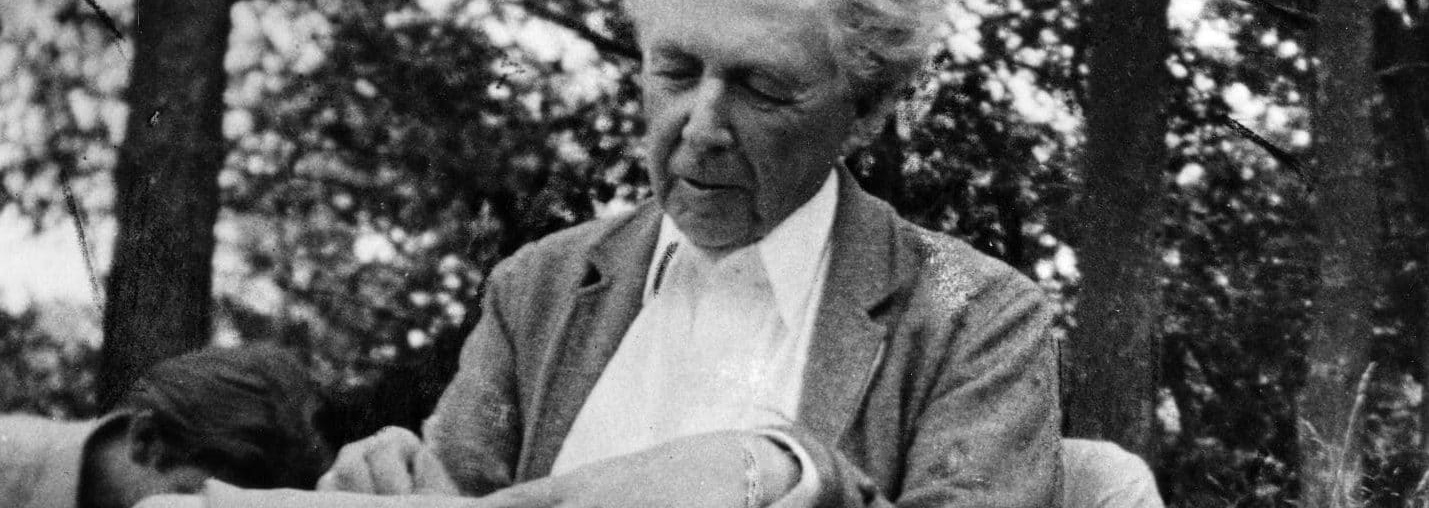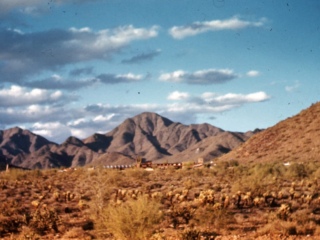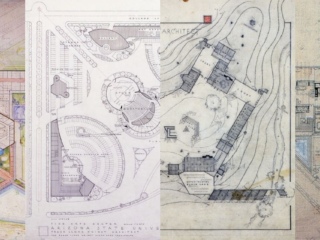
Frank Lloyd Wright: Books That Have Meant the Most to Me
Frank Lloyd Wright | Nov 16, 2017
The following excerpt was originally published in a September 1932 issue of Scholastic magazine, and then in Frank Lloyd Wright Collected Writings, Vol. III, edited by Bruce Brooks Pfeiffer.
I suppose the books one has chosen or has happened to read are important. Everybody makes a more or less natural selection, I should say, notwithstanding suggestions or commands. And the book fodder for which we have a natural taste does most to feed the thing we call ourselves.
The Arabian Nights fascinated me as a boy. Aladdin and his wonderful lamp—“imagination” was the lamp as I see now—was one of the tales that never tired me. My father there in Edward Everett Hale’s The Man Without a Country and that made a deep impression. I remember Don Quixote was with me early, almost as early as Gulliver’s Travels and Robinson Crusoe.
I should mention Wilhelm Meister. I got to that through Carlyle, after Sartor Resartus. I owe a lot to Shakespeare because of Carlyle, and to Goethe, the “great liberator.” And I should be ungrateful if I omitted to mention Victor Hugo, the great modern in my boyhood, who declared for romanticism as a new freedom. He wrote the best amateur essay on architecture ever published. It is in Nôtre Dame de Paris.
In early manhood I was a Meredithian to the bone for years—am yet. When I discovered Samuel Butler, William Blake came to stay and in Blake I found the source of the Pre-Raphaelite movement in England. Rabelais came along about that time. But Shelley lifted me higher than was my wont in middle life, and strange to say I became one of Walt Whitman’s lovers about the same time. I see no chasm between Shelley and Whitman, though Old Walt is much more with me now. So are Thoreau and Emerson.
I have read with enthusiasm the great Russians. They early on got inside me, from Tolstoy and Gogol to Gorky and Dostoyevski. Lately, finding the Bible in print by Cobden-Sanderson, I’ve found it entirely fresh reading and inspiring. I like Carl Sandburg, Edna St. Vincent Millay, Ring Lardner, Westbrook Pegler, Alexander Woollcott, and the editorial observations of The New Yorker.
Mine is a catholic taste which probably means a hearty appetite and I find much to admire in books that do not touch my own work. When I get to those, I find too much pretended or missing.
But, to me, the greatest literature, after all, is not words but notes. Bach, Handel, and Beethoven, Stravinsky, Scriabin, Debussy, and sometimes the Negro spirituals and jazz. Music gives me more now.
My son Lloyd once took me to task for swinging so wide an arc in my appreciation, taking it for a lack of distinction and discrimination. So here I made my confession, with an uneasy feeling that I have probably omitted to mention the most important, if incidental, book-factors in my making because they were so thoroughly digested as to be utterly forgotten now.




